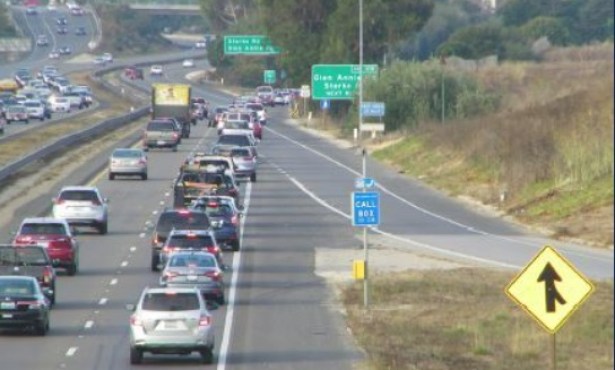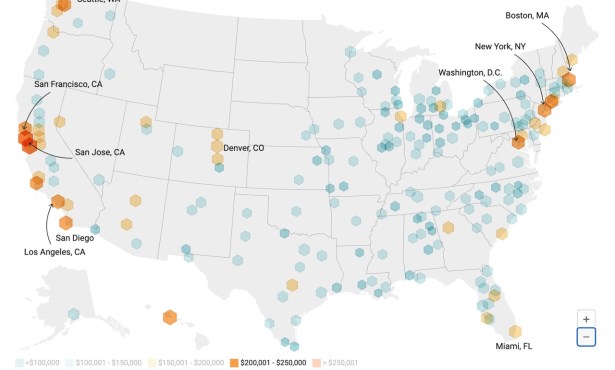California Legislature to Vote on Tenant Protections
Clock Is Ticking on Eviction Protections

The message was grim. But what else could anyone expect in the age of COVID?
Members of the Santa Barbara Tenants Union and CAUSE, hosting an outdoor press conference by the Santa Barbara Courthouse warned that millions of California renters — through no fault of their own — could find themselves subject to legal eviction within two weeks unless new legislation is passed in Sacramento.
The tenants protection bill — so agonizingly hammered out this past summer — will expire as of February 1, meaning landlords can evict tenants who can’t afford to pay their rent because of COVID-related loss of income. One month after that, those same tenants will also be subject to small claims actions for unpaid back rent.
The COVID crisis has not gotten better, the speakers pointedly noted; it’s gotten much worse. Even so, tenants who have not paid at least 25 percent of rent owed over a four-month period will be subject to eviction unless new protections are enacted.
“Paying this amount is harder than it seems,” said one speaker. Federal supplemental unemployment payments ran out and many never qualified for such help in the first place. Families, the speakers warned, could find themselves on the street as the pandemic rages. To prevent this, they called on State Senator Monique Limón and Assemblymember Steve Bennett to support Assembly Bill 15, introduced in December by Assemblymember David Chiu, who led the charge for Assembly Bill 3088, the eviction protection bill about to expire.
Get the top stories in your inbox by signing up for our daily newsletter, Indy Today.
Bennett and Limón have already announced they support AB 15. Limón has also expressed support for another measure, Senate Bill 3, considerably weaker in its protections than AB 15. Bennett and Limón made it clear something had to pass in Sacramento. And fast. But given that the legislation — as an urgency measure — will require a two-thirds super majority, they both warned any final measure would be subject to significant compromises at the bargaining table. Something, they predicted, would get approved. The prospect of thousands of tenants rendered homeless, they acknowledged, posed not just a humanitarian crisis, but in the time of COVID, a public health threat.
If passed as written, AB 15 would extend the eviction protections that now exist by 12 months. SB 3 would only extend those protections through March.
Everyone is at the bargaining table, Limón said, where the contest is all about time and money. Landlords, she said, have gone without rent for many months. But many tenants simply can’t afford to pay. About the only thing both sides agree upon, she said, is that “a big bucket of money” would help. There’s talk of $2 billion in federal assistance for tenants economically displaced by COVID, but it’s anyone’s guess how much of that would go to California. “Do we split it up by state? Do we split it up based on population? Or do we split it up based on the number of renters?” she asked. “No one knows.” Governor Gavin Newsom has included $5 million for tenants’ assistance in his proposed budget, but that’s a drop in the bucket compared to the epic scale of the need.
Limón said she hears of some landlords being pushed to the brink, but many, she said, have been offered some forms of mortgage forbearance by their lenders. They’re squeaking by. “It’s the tenants we’re hearing about. They’re up against it. Not only have they lost their jobs, but then they have to deal with the EDD nightmare.”
Politically, Limón said, something has to budge. “All 120 legislators have landlords in their districts, and they have tenants,” Limón said. “This is something everyone is feeling.” The landlord lobby has reportedly made it clear it would prefer to deal with one statewide measure as opposed to hundreds of protections enacted by cities and counties throughout the state. How that flies has yet to be seen.
Both Bennett and Limón are keenly aware that the clock is ticking. Only a couple weeks remain and a two-thirds majority is required. If and when a deal is reached, Limon is confident of one thing. “Neither side is going to be jumping up and down.”
This article was underwritten in part by the Mickey Flacks Journalism Fund for Social Justice, a proud, innovative supporter of local news. To make a contribution go to sbcan.org/journalism_fund.



